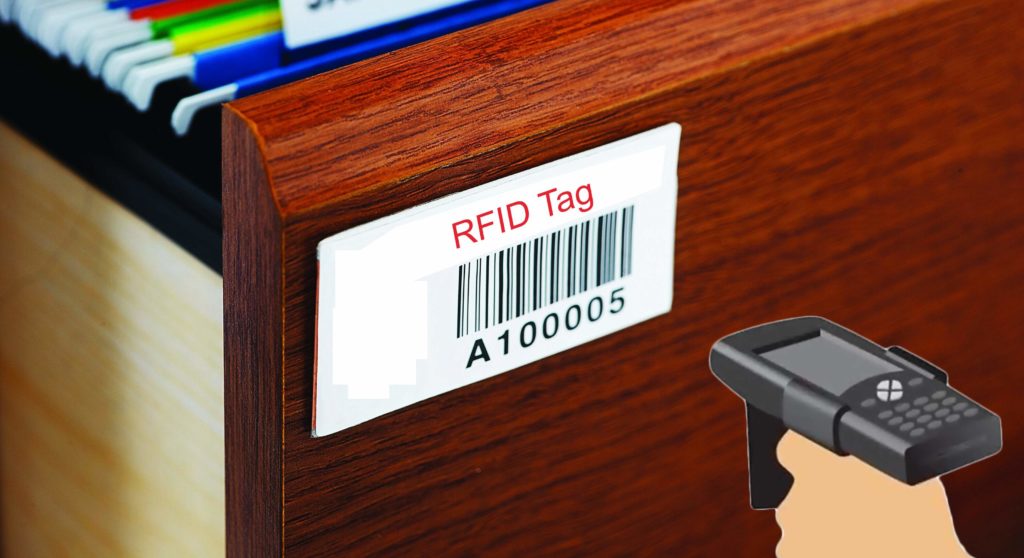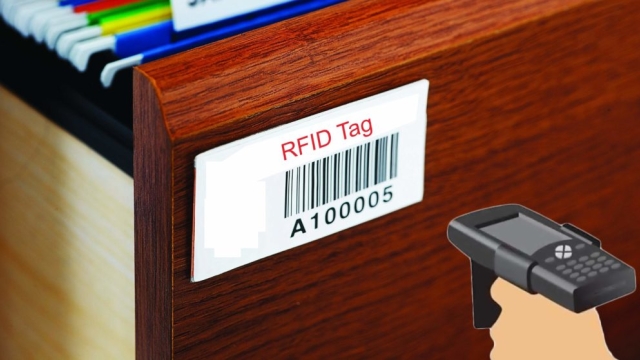RFID technology has rapidly emerged as a groundbreaking innovation, reshaping the way businesses and industries manage their operations. With its ability to wirelessly identify and track objects in real-time, RFID technology has become an integral part of supply chains, logistics, retail, healthcare, and various other sectors. This transformative technology has paved the way for increased efficiency, enhanced inventory management, improved customer experiences, and heightened security measures. As we delve deeper into the wonders of RFID technology, we uncover its potential to revolutionize the way we interact with the world around us and unlock a realm of endless possibilities. Let’s embark on this technological journey and explore the extraordinary capabilities of RFID.
1. How RFID Technology Works
RFID technology is a fascinating innovation that has revolutionized various industries. It stands for Radio Frequency Identification and works by utilizing radio waves to identify and track objects. The process involves the use of RFID tags, readers, and a database system.

RFID tags are small electronic devices that consist of a microchip and an antenna. These tags are attached or embedded into items and can store data such as product details or identification numbers. The tags are passive, meaning they do not require a power source of their own.
When an RFID reader emits radio waves, the RFID tags within its range detect the signals. The antenna on the tag then absorbs the energy from the radio waves and activates the microchip. The microchip, powered by this energy, generates a response that includes the stored data.
The RFID reader receives the response from the tag, decodes the data, and transfers it to a computer or a database system for processing and analysis. This real-time information retrieval enables businesses to efficiently manage inventory, track assets, and improve overall operational efficiency.
RFID technology has countless applications – from supply chain management and retail to healthcare, transportation, and even animal tracking. Its ability to accurately identify and track items has made it a game-changer in many industries, streamlining operations and providing valuable data insights.
2. Applications of RFID Technology
RFID technology has revolutionized various industries with its wide range of applications. Let’s explore some of the key areas where this technology is making a significant impact.
-
Supply Chain Management: RFID technology is being extensively used in supply chain management to track and manage inventory. By tagging products with RFID labels, companies can significantly improve the efficiency of their logistics operations. With the help of RFID readers, they can track the movement of goods in real-time, reducing errors and enabling faster and more accurate inventory management.
-
Retail and Customer Experience: In the retail sector, RFID technology is enhancing the overall customer experience. Retailers can use RFID tags on products to automate the checkout process, eliminating the need for manual scanning of barcodes. This enables faster and smoother transactions, reducing waiting times for customers. Additionally, retailers can also use RFID tags for inventory management, ensuring the availability of products on the shelves and reducing stock-outs.
-
Healthcare and Asset Tracking: RFID technology is playing a vital role in the healthcare industry, especially in asset tracking. Hospitals and healthcare facilities can tag medical equipment, such as wheelchairs, monitors, and infusion pumps, with RFID labels. This allows quick and accurate identification and location tracking of these assets, saving time and improving operational efficiency. Additionally, RFID tags can also help in tracking patient records and medication, reducing the chances of errors and improving patient safety.
RFID technology has immense potential and is being adopted in many other sectors, including transportation, manufacturing, and event management, to name a few. As the technology continues to advance, we can expect even more innovative applications that will further revolutionize various industries.
3. Advantages and Limitations of RFID Technology
RFID technology offers numerous benefits that have revolutionized various industries. One key advantage is its ability to improve inventory management. With RFID tags attached to items, businesses can easily track their products in real-time, reducing the need for manual stocktaking and minimizing errors.
Another advantage of RFID is its speed and efficiency in data collection. Unlike traditional barcode scanning, RFID tags can be read from a distance and in bulk, enabling quick and simultaneous identification of multiple items. This not only streamlines operations but also enhances overall productivity.
Furthermore, RFID technology enhances security measures by providing better item tracking and authentication. The unique identification codes associated with each RFID tag make it easier to monitor goods throughout the supply chain, reducing the risk of theft or counterfeiting. This feature is particularly valuable in industries such as pharmaceuticals and luxury goods.
However, it is important to acknowledge the limitations of RFID technology. One major constraint is the cost associated with implementing RFID systems. The expense of purchasing, installing, and maintaining the necessary infrastructure can be a significant investment for businesses, especially smaller ones. Additionally, RFID tags can be relatively expensive when compared to traditional barcodes.
Privacy concerns are another limitation to consider. RFID technology relies on radio waves to transmit and receive data, which raises concerns about potential unauthorized access or tracking of individuals’ personal information. Safeguarding data and ensuring privacy protection should be paramount when utilizing RFID technology.
Lastly, RFID tags require a power source to function, whether it is a battery or energy harvested from an external source. This means that if the power source runs out, the tags become ineffective. Therefore, ongoing maintenance and monitoring of the RFID infrastructure is essential to ensure uninterrupted operation.
In conclusion, RFID technology offers significant advantages such as improved inventory management, efficient data collection, and enhanced security measures. However, it is crucial to carefully consider the associated costs, privacy concerns, and the need for continuous power supply when implementing RFID systems.
